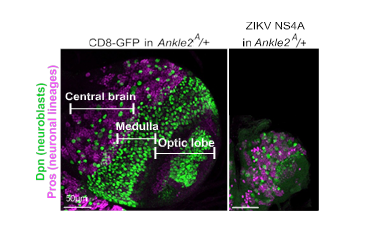Reviving immune responsiveness after tuberculosis

Tuberculosis (TB) is a disease that mostly affects the lungs and is caused by a type of bacteria. According to the World Health Organization, 10 million people fall ill with TB and 1.5 million die from it every year around the world.
The disease is preventable and curable. However, the infection leaves ‘scars’ that drive the long-term decline in immune response and increased mortality that persist after TB has been successfully treated.
 Dr. Andrew DiNardo, associate professor in the section of infectious diseases and division of pediatric global and immigrant health at Baylor College of Medicine and Texas Children’s Hospital and his colleagues investigated what mediates the disruption of immune function after TB infections. Their findings are published in the Proceedings of the National Academy of Sciences.
Dr. Andrew DiNardo, associate professor in the section of infectious diseases and division of pediatric global and immigrant health at Baylor College of Medicine and Texas Children’s Hospital and his colleagues investigated what mediates the disruption of immune function after TB infections. Their findings are published in the Proceedings of the National Academy of Sciences.
TB leaves ‘epigenetic scars’
Researchers knew that severe and chronic infections in humans and animals lead to persistent epigenetic changes or ‘scars.’ These changes refer to alterations in chemical markings on the DNA that tell cells in the body which genes to turn on or off.
For instance, TB dampens immune responsiveness by adding extra methyl chemical tags (DNA methylation) to certain genes involved in immune responses. The new tags turn off the immune genes. Consequently, the body produces fewer proteins mediating immune defense which increases susceptibility to infections. However, how these scars happen in infections was not clear.
TCA plays a role in epigenetic changes
Previous studies have identified the tricarboxylic acid (TCA) cycle, a key part of cellular metabolism, as a metabolic driver of the epigenetic landscape in cancer.
DiNardo and his colleagues wanted to see if TCA also regulated epigenetics, specifically DNA methylation, after infection-induced immune tolerance.
The team reported that human immune cells treated in the lab with bacterial lipopolysaccharide, a bacterial product, and Mycobacterium tuberculosis, the bacteria that cause TB, became immune tolerant.
Healing epigenetic scars
The team also found that TB patients have increased TCA activation and DNA methylation. When TB patients were given the standard care of therapy and antibiotics plus everolimus, an inhibitor of TCA activation, the scars on their DNA were reduced, which suggests that healing these epigenetic scars could restore the immune system after severe infections.
“Tuberculosis is an interesting disease. By the time a person is diagnosed, they have had symptoms for over three months.”
But seeing that adding everolimus to standard TB antibiotic treatment reduces the number of detrimental DNA methylation marks six months into the disease is promising that we can induce epigenetic healing and hopefully revive immune responsiveness,” DiNardo said.
 “What we found is going to lead to a paradigm shift,” said Dr. Cristian Coarfa, co-author and associate professor of molecular and cellular biology at Baylor.
“What we found is going to lead to a paradigm shift,” said Dr. Cristian Coarfa, co-author and associate professor of molecular and cellular biology at Baylor.
Our approaches are not limited to tuberculosis. The evidence we have and what we are trying to build on suggests that these strategies might play a role in other infectious diseases.”
The next step for the researchers is to identify which post-TB epigenetic marks are leading to increased illness and mortality. From there, they would like to determine which individuals would benefit the most from a host-directed therapy that can heal epigenetic scars.
Other contributors to this research include Abhimanyu, Santiago Carrero Longlax, Tomoki Nishiguchi, Malik Ladki, Daanish Sheikh, Amera L. Martinez, Emily M. Mace, Sandra L. Grimm, Thaleia Caldwell, Alexandra Portillo Varela, Rajagopal V. Sekha, Anna M. Madalakas, Mandla Mlotshwa, Sibuse Ginidza, Jeffrey Cirilo, Robert S. Wallis, Mihai G. Netea and Reinout van Crevel. The authors are affiliated with one or more of the following institutions: Baylor College of Medicine, Texas Children’s Hospital, Columbia University Irving Medical Center, UTHealth School of Public Health-Houston, Research Center Borstel, the Aurum institute, Radboud University Medical Center, University of Bonn, University of Oxford, Case Western Reserve University, Vanderbilt University, University of Johannesburg and Texas A&M School of Medicine.
See the publication for the full list of funding.
Follow From the Labs on X @BCMFromtheLabs and Instagram!



